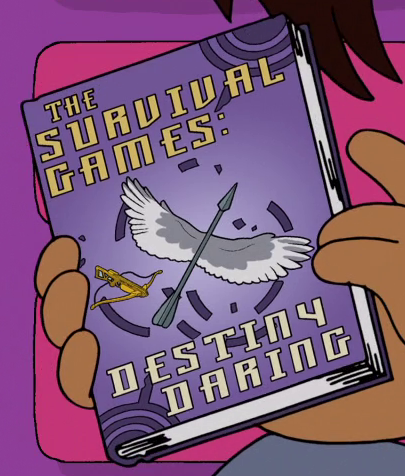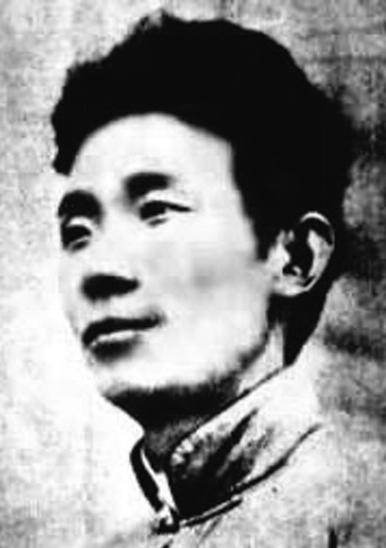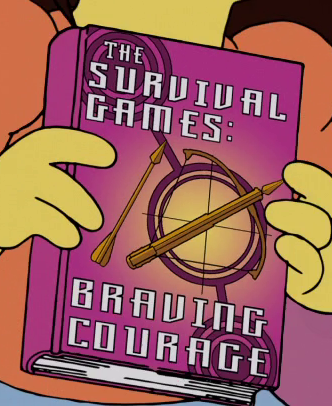Whether we like it or not, we see bad films once in a while. There’s nothing we can do about that. But on the up side, sometimes the horribly made films get one thing right, in most cases a good character that got stuck in the wrong plot. Usually, in my opinion, these unfortunate characters are villains. So I will list a few villains which I enjoyed tremendously despite the otherwise unpleasant context in the films.
The Kingpin from “Daredevil” (2003) – A adaption of Marvel’s comic books, “Daredevil” is one of those films that have a interesting premise but due to unfortunate casting and some weak storytelling fails to deliver. The plot centers on Matt Murdock, a blind lawyer who also is a ruthless vigilante at night. Since Murdock was blinded by toxic waste as a child, his remaining senses were enchanted and greatly enhanced, with his hearing becoming particularly powerful, helping him in his fight against crime. While on his crusade against crime, Murdock goes on to meet the attractive and equally skilled martial artist Elektra Nachios, whose wealthy tycoon father is trying to bring down The Kingpin, a powerful crime lord. As Murdock and Elektra become romantically involved, The Kingpin hires an overly proud and sadistic assassin to get rid of Elektra’s father.
The movie’s biggest flaw is Ben Affleck, playing the main hero, who’s plain and bland expressions make it hard to buy the character of Daredevil. This flaw in the film is truly a pity since having a disabled superhero is a very out of the ordinary idea, as well as having the hero actually try and fight for justice in his more “normal” life as well (Murdock being a lawyer who only takes clients who really need help). Jennifer Gardner as Elektra is painstakingly dull as well in her characterization of the supposedly strong and independent warrior woman. I did enjoy this film the first time I saw it (at the age of twelve), but now I think the only thing that works in the film are the two villains, Bullseye, played by Colin Farrell, who is enjoyable hammy. And The Kingpin, played by Michael Clarke Duncan.
The Kingpin is a huge man with a smug attitude. Like Daredevil, The Kingpin is ruthless, but in his case in his criminal schemes. In the fight scenes, Duncan is more than able to come off as intimidating and the casual violence of The Kingpin’s motivations are, in his words, strictly professional, makes him more than heady stuff . If he can gain power and profit by killing, he’ll do so, which in his mind proves he’s no worse than other power-hungry people. There are many similar kinds of villains with similar motivations, but Duncan’s performance is so spot-on that you won’t forget it. Even if the rest of the film you will.
Loki from “Thor” (2011) – This film is another adaption of a popular Marvel Comic book superhero, but with a less appealing premise than “Daredevil”. The protagonist in this film is the arrogant and hotheaded god of thunder Thor, who after jeopardizing diplomatic relations between the Gods and their former archenemies the Frost Giants, gets sent to earth by his father Odin as punishment. There he meets Jane, a scientist studying storms. While on earth he learns to become more humble, yet at the same moment at Home in Asgard (A different section of the Galaxy?? I guess?) his brother Loki learns that he isn’t one of the gods, but actually an adopted Frost Giant Odin raised in hopes of gaining diplomatic leverage with the Giants. This news breaks Loki’s heart, and after his father falls into a deep sleep he becomes the new king of Asgard. Pleased, with these turn of events, Loki starts plotting…
“Thor” as a movie is a complete mess. The lead character is totally unlikeable, even if he supposedly “grows up” later in the films process. Even if he learns to control his temper, which is good because his anger problem was nearly psychotic, he still seems arrogant at the end of the film. Jane, portrayed by Natalie Portman, is one of the most offensive portrayals of women I’ve seen in years: even if she’s supposed to be a determined mature scientist she behaves like a bratty teenager throughout the film. Which include numerous scenes of her whining, placing blame on others when she fears she’s done something bad and giggles stupidly around Thor, plus helping him do “chores” that no normal human being would consider a good idea. Her female assistant is similar in many too many ways, which made me wonder if the writers of this film hated female intellectuals*. The dialogue in this film made little sense. The only thing that worked in this film was the antagonist, and luckily it worked extremely well.
Loki is a somewhat unusual villain in that he is quite sympathetic. It is impossible to not feel sorry for him, despite the utterly awful things he is thinking of carrying out (which may be one of the most evil thoughts in Cinema, and which this film gives you no sense of in its mess of writing), and some parts of Loki’s speeches and, at times, mere line-deliveries, tug at the heart strings. From the very start of the movie, Loki is shown to have always been the quiet one in his family, outshined by Thor. While Thor is surrounded by friends, Loki stands quietly in the shades, rarely being addressed. When he realizes his father has been lying to him his whole life and thought of him mostly as a politically chit instead of raising him out of love, he becomes desperate to prove himself to Odin at any cost. He loves his “father” despite all the lies; as well as believes what he is doing is ultimately the best for Asgard, which makes him an anti-villain as well as a sympathetic one. At the near end, when Loki explains his actions to Thor, you can see Loki’s eyes tear up, and his speech of a life lacking love and acceptance, and being put continually in the shadows, was expressed so skillfully and powerfully that it nearly tugged a tear out of me. Tom Hiddleston puts a lot of energy in his performance as Loki, making one of the more relatable villains in Superhero movies in a while. Too bad the rest of the movie is pure crap.
Ursula, the sea Witch, from “The Little Mermaid” (1989) – The film that is often seen as the breakthrough for Disney’s renaissance and well-loved, but personally this film rubs me the wrong way completely. Ariel, the main protagonist of the film, is a sixteen year old mermaid who has a deep fascination for humans and longs to become one herself. Her Father, King Triton, a merman and head leader of the merpeople, strongly dislikes Ariel’s interest in the world of humans. As Ariel becomes infatuated with a human prince, King Triton’s patient reaches its limits and he and Ariel have a rather intense quarrel. Ariel finds out there is a way for her to become human: she must strike a deal with Ursula, the sea witch, to gain what she wants. Which she does; she exchanges her voice for a pair of legs and has three days to get the prince to give her the kiss of true love so she can stay human permanently.
Ariel as a heroine is annoying and a pretty bad female character. She puts her friends in danger, she sacrifices everything for a guy she barely knows, incessantly harps on a world she has no real information of (and others try to tell her how violent that world really is, but to no avail), and continually puts herself into dangerous situations for no reason. I also dislike how the film more or less teaches girls to center their life on men and that they have to choose between their father’s world and their husband’s world, no in-between world being possible, as well as the main character not really ever learning from her mistakes. For better critiques on this film, go here for a feminist critique or here for a video debate on the film.
However, the half-human half-octopus witch Ursula is perhaps one of the coolest cartoon villains ever drawn. Ursula is unapologetically ambitious, snarky and unashamedly thirsting for power, using Ariel to get to her father’s throne. Ursula may be merciless and cruel towards the merfolk who make deals with her, yet at the same time she surprisingly and truly cares about her two eel henchmen, Flutsum and Jetsum. This characteristic makes Ursula seem more human and three-dimensional: she is evil, but not to the point where she can’t feel empathy and love. Also, having a villain actually display affection towards someone is very unusual in Disney films. Ursula is probably best known for her villain song, “Poor Unfortunate Souls”, one of the best songs written for children’s cartoons ever, as well as showing off the films villain in all her manipulating glory. “The Little mermaid” is a problematic film, but the villain is awesome and pure joy to watch.
“Poor Unfortunate Souls”, with the fabulous villain Ursula!
Hades from “Hercules” (1997) – This film is very loosely based on Greek Mythology, but in all its perplexing glory is really a rambling telling of Disney’s own version of Hercules. Born a god-birthing to Zeus and Hera, Hercules has become a mortal, though one with super-strength, through the failed mechanism of a kidnapping which leaves him stranded on the earth far below Olympus. He is raised by loving mortal parents, but after discovering he’s is in actuality the son of Zeus the hero, as is their station, goes on a quest to earn back his place at the side of the other gods as well as his immortality.
The film is a bad mixture of lame modern day references, plot holes and underdeveloped characters. Hercules is a dull hero, who also comes off as stringently uncaring for the confines of friends and family and we find him quite casually abandoning loving parents for another more “famous and powerful” dad, and constantly bathing in his own idea of his “greatness”.
The songs are annoying in this film, but luckily forgettable. I did really like Hercules’ cynical love interest Megara, and her song about not wanting to fall in love, but other than that the only thing I really enjoyed was the villain Hades.
Few comical villains are done just right, Hades being one of them. James Woods is perfect as the voice talent, imitating the stereotypical car sales men. Like Ursula, Hades likes to make “deals” with the films protagonists that are highly unfair, while all the while making sarcastic remarks regarding the protagonist certain and inevitable doom. However Hades, as a character, is persistently motivated by his evil to abuse his henchmen, which makes him more “pure evil” than Ursula. Hades, even with this slight drawback, delivers many rich, memorable lines, and is pretty powerful, almost winning in the film (which may have improved the film).
Dr. Jonathan Crane, AKA Scarecrow from “Batman Begins” (2005) – As I have mentioned in my Inception review, I am not a fan of Nolan’s Batman movies, mostly due to Christian Bale’s performance of Bruce Wayne/Batman, who is annoying as Bruce Wayne and not at all intimidating or sympathetic as the vigilante. Katie Holmes as Bruce’s childhood friend and “love interest” Rachel does such a horrible acting job that it was near comical. Batman makes big speeches about how it’s wrong to kill, but three times in the film commits acts that would most certainly take lives (driving in a fury to the Batcave, flipping over police cars on the way in the middle of the film; blowing up a building in the near beginning of the film; tying a man up on a huge light, which all science would say would have fried the man alive) making that rule (not to take life in his vigilant role) seem like a joke. Which it shouldn’t since it’s a darn good rule.
And as a mild spoiler, I can say that the main villain is a dull, tedious bad guy. Liam Neeson, who plays that villain, nearly put me to sleep, making me question whether or not he was even doing an effort in his role. Frankly, the reveal of the big bad was what killed the movie for me.
The savior for this film is one of the “minor” villains Dr. Jonathan Crane, a psychiatrist at Arkham Asylum who helps powerful mobs by “diagnosing” their caught hit men as insane, thus sending them to the Asylum instead of prison. This way the mob can (somehow) keep their strong position. However, Jonathan has a more selfish reason for his help: he has developed fear-inducing toxins, and likes to use his patients as human guinea pigs for his experiments, where he takes on his alter ego “Scarecrow”. Crane is a strong believer in the minds power and ultimate influence over the body, and uses his toxins to paralyze people with fear; he is also able to drive people permanently insane with his toxins. Even if not a very strong person or physically threatening, Cranes wits and weapons are far more terrifying than any brutish personality would ever be.
Cillian Murphy, who plays Scarecrow, perfectly embodies the creepiness and sliminess of this villain. Throughout the film he speaks in a calm, gentle tone, dressing in sharp suits even when going out to do evil biddings, portraying this villain as a poster boy for the term “sophisticated evil”, as well as making him a bit of a seductive monster. Dr. Crane does what he does, it seems, mostly because he can; which perhaps is the most unsettling thing about the character. He is evil merely because he can be. His character is evasively clever and decidedly smart enough to manipulate, as well as have the devilishly creative genius to form the toxins which drive others mad, yet lacks empathy, which as his motto states: “Sucks to be you, Gotham!”. Murphy apparently read a lot of Batman comics featuring Scarecrow while discussing with Nolan how the villain should be formed and function, and it shows: His interpretation of Scarecrows personality is similar to the ones in the comics, but less theatrical. I have absolutely no complaints about this villain, except for the fact that he is not the main villain. I would probably been able to over look all the other flaws in this film if The Scarecrow would have been just that: The Major Villain, and the Focus of Fear (and the actor which does it right out of the whole thing).
Scarecrow makes a powerful crime boss one of his victims. I’m Scare-roused**!
It’s hard to summarize what all of these villains do just right (inside of the evil villain gig), since they are all very divergent characters: some you feel sorry for despite the evil things they do, some you fear with great viewer satisfaction due to the fact that they steep in a seductive evil just for the sake of it. However, inside of the films in which these villain antogonists are featured, they hold a presence and become a singular point sense in the nonsensical context of the movies in which they, sadly are made to appear. They are the succulent and subtle treat you get along side of a direful mass of a tasteless dish!
*Just want to say that Sigourney Weaver played a much better example of a female scientist in James Cameron’s “Avatar” (2009). The movie is very mediocre, but Weavers character is more of how Blockbuster films should portray of a female scientist.
** “Futurama” reference, the main character says this about some women he encounters in the episode “Fry am the Egg Man”

















what a fun list.
and i like Ursula the best
Thank you! I’m glad you thought the list was fun.
I think my favorite is Dr. Jonathan Crane (Scarecrow), but Ursula is my second favorite definitely! She’s awesome, no doubt 🙂
Jättebra inlägg och urval av ondingar! 🙂
Älskar att läsa dina tankar om filmer.
Har ju inte sett alla filmer på denna lista men jag håller starkt med dig om de jag sett.
Thor: Dålig film, men Loki var awesome!
Lilla sjöjungfrun: hemskt dålig men Ursula och hennes sång är riktigt underhållande!
Herkules: Dålig film men Hades är väldigt rolig.
Batman var det så länge sedan jag såg men jag vet ju att scenerna med scarecrow är bra! 🙂
Än en gång, riktigt bra inlägg!
Tackar, tackar! Glad att du gillade mina urval! 🙂
Ja, Loki är awesome! Hoppas de förstör honom inte i den kommande filmen “The Avengers”… (verkar som han ska vara skurken eller en av skurkarna,så.)
Ursula och Hades är fantastiska, och både roliga, absolut :-).
Och scenerna med Scarecrow… jag tror jag skulle kunna gå i timtal prat om hur mycket jag älskar den här versionen av Batman skurken! Hans replik “Would you like to see my mask?” är så episk!
Tack så mycket för den fina kommentaren!